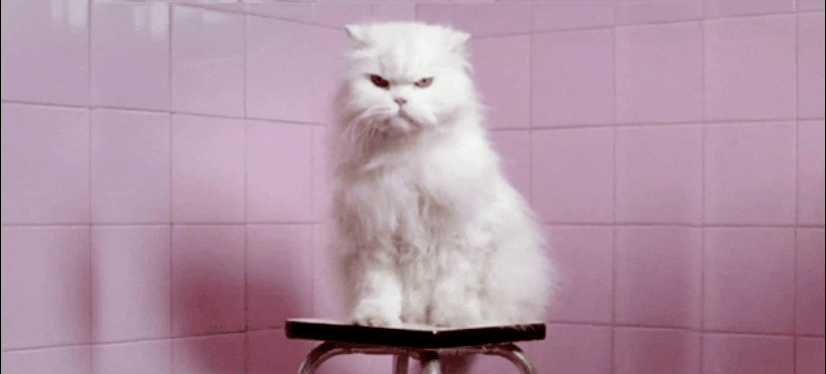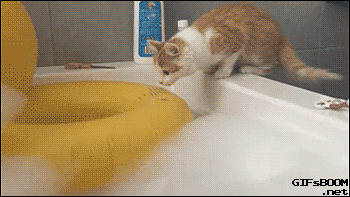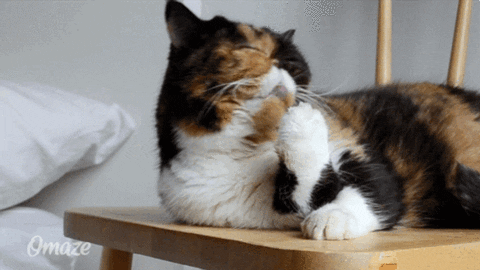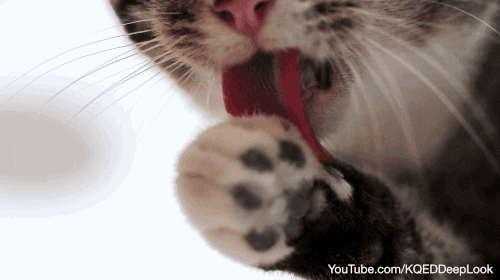
Every cat owner’s biggest nightmare is taking their furry feline friend for a bath. Unlike some of their bigger cousins of the cat family (like tigers and jaguars) who love to take a swim in the waters of the wilderness, smaller house cats seem to hate being anywhere near water.
So, what exactly is the relationship between cats and water? Do cats have a phobia of being near water, or do they simply hate taking a shower, like most of us on rainy days?
While the whole scenario between cats and water looks like a silly love-hate relationship, there are some interesting scientific facts behind the aversion of cats toward water.

Most domestic cats are descendants of African wildcats that originated in arid climates with very few large bodies of water like rivers and lakes. As a result, these cats never needed to learn to swim. Even now, almost 10,000 years later, domestic cats will still avoid water.
Studies show that the normal body temperature of a cat is around 98.1oF to 102.1oF, which is greater than that of a human body. Since cats have a higher body temperature, their heat tolerance is also quite high. Thus, they generally prefer heat and warmth.
Even if domesticated, cats still have an innate predatory nature. They have an active metabolism and love to hunt. All these activities require energy, which is obtained by conserving body heat or relying on external heat sources. This is why cats take a sunbath or cuddle up into a small furball – they know how to optimize their body heat.
Being in the water, however, drops their body temperature, which is not good for their health. Therefore, cats prefer staying away from water.
You have likely seen dogs play with water and shake it off their fur with great ease, but cats don’t seem to do that. This is because their fur is quite different. A dog’s fur is closer to a raincoat, which can easily get rid of the water, whereas that of a cat is similar to a woollen cloth, which gets drenched and heavy when wet.

Cat fur is not water-resistant, so when a cat gets drenched in water, these layers get wet and lower the creature’s body temperature.
If a cat has long hair, water will make it heavier; which makes it difficult for the cat to stay afloat without drowning. It will also affect their “cat-like reflexes” and make them uncomfortable. If the hair is shorter, exposure to water will make the cat super cold, which is not good either, as their optimal temperature is on the warmer end!

Credit: GIPHY
While water doesn’t have a particular odour to humans, the same is not true for cats. Cats have a superior sense of smell to humans. The average human has around 5 million sensors in their nose, whereas a cat has about 200 million.
Water has a lot of chemicals and dissolved matter within it. And with about 14 times a better sense of smell than humans, cats can detect most of these. This is one of the reasons why cats do not want water all over their body. They don’t want unnecessary scents on them! Just think about how strong the smell of chlorine in water is going to be for our poor little cats.
Cats also secrete pheromones into their fur to mark their territory and communicate with other cats. So, water on their fur may wash off this particular scent from the cat’s body, which it uses to establish its identity.
Cats have made it pretty clear that they don’t need water to remain clean. In that case, how do cats keep themselves tidy? Well, the answer is… their tongue. Cats spend hours licking and grooming themselves. This is not out of boredom! It’s how they maintain their coat. A cat’s tongue is like a miniature hairbrush. It has sharp spiky structures called papillae that help to comb and get rid of the dirt. Also, the saliva transferred while licking helps with their body scent.

Credit: GIPHY
Even though most cat breeds are “hydrophobic”, there are some exceptions to this. Some breeds of cats love being in the water, a phenomenon linked to their evolution and body structure. Breeds like the Turkish Van, the Abyssinian and some hybrid or trained breeds have no problem with water or taking a swim.
Cats aren’t scared of water; they’re just not used to it. So, the next time your cat refuses to take a bath, try to remember that their ancestors were from the deserts and that your feline friend can probably take care of its own hygiene!
Raza has been writing since 2008, be it fiction, poetry, or articles on science, politics, and history. He believes that words can change the world, and he uses them to inspire and empower people through his writing. When he is not working, he is watching nature documentaries or playing with his cats.
Comments
Manas Nair
April 8, 2022
Exactly why I’m a dog person??